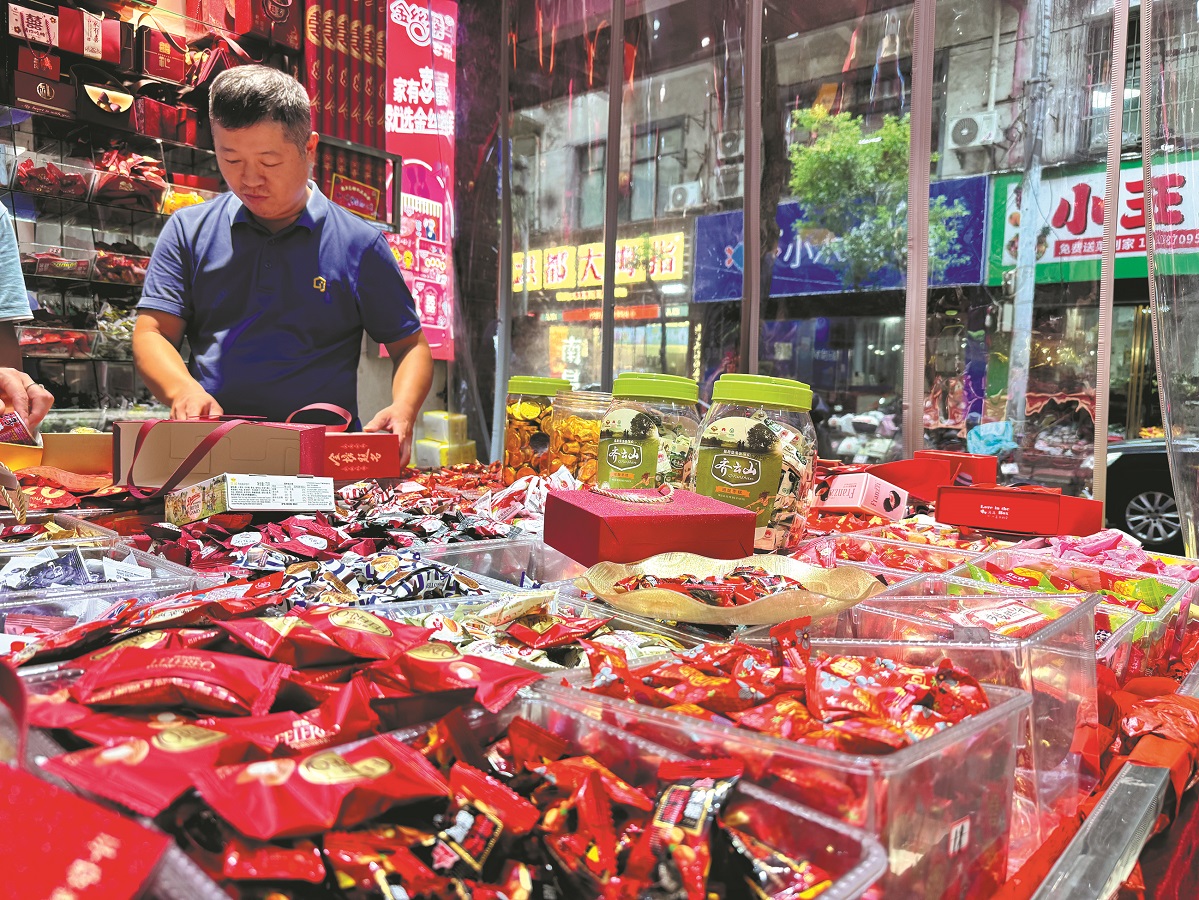Decaying wedding candy sales a sign of social change
Matrimonial tradition fades in face of healthier, sugar-free lifestyles, declining nuptials


Healthy lifestyle
A major reason the candy market is in decline is that candies are not as popular with young people as they once were. They have been replaced with sweet alternatives such as fruit and tea-flavored beverages, while there are also sugar-free, and low-sugar options for health-conscious consumers.
Many celebrities and online influencers across the world are also advocating sugar-free lifestyles, often scrutinizing the sugar content of various drinks and foods.
Urban residents' per capita sugar consumption has been decreasing annually over the past decade, according to the National Bureau of Statistics.
To address the decline, food manufacturers in recent years have come up with the concept of "functional candy" — the addition of vitamins to products to give them purported health benefits.
According to Market Research.com, global functional confectionery market reached $2.30 billion in 2022 and is expected to reach $3.98 billion by 2030.
The 2022 financial report of White Rabbit candy also highlights "functional and health-oriented" as future development trends.
In the past, it was common for families to buy substantial amounts of candy for the Chinese New Year. Today, even a small amount of 500 grams is considered "too much".
"Five or six years ago, our family still bought candy for the traditional Chinese New Year holiday. But later we found that the candy bought in February wasn't finished by the Mid-Autumn Festival," Lin said.
"Over the past two years, my parents haven't bought any candy during the Spring Festival — they only bought some chocolates that I like."
Hu Jiaying, who is getting married in Nanchang in October, delegated the task of buying wedding candy to her elders.
"Buying wedding candy is just a formality now. We don't eat it ourselves. It's too sweet and unhealthy," Hu said.
At the 2023 China Candy Forum, Wang Qi, vice president of the China Food Industry Association, said that since 2015, the total output of large-scale candy enterprises in China has been declining.
"Food consumption is shifting from survival to health and enjoyment," Wang said. "But compared to developed countries, China's candy industry lacks innovation, product variety, brand presence, and has an outdated research and development structure, resulting in a low market share."
To survive financially after the pandemic, Liu has started another business in her shop. Half the shop displays candy, while the other half has rows of women's clothes.
"We open the shop at 8 am and close at 9 in the evening. Just selling wedding candy can hardly make ends meet. We have two kids to support," Liu said.
Liu's son is in eighth grade and her eldest daughter is a high school senior. During the summer vacation, they do their homework and play games in the candy shop.
"We have no other way to make a living. We just hope more people get married so we can make some money during the upcoming National Day holiday," said Xu.


















